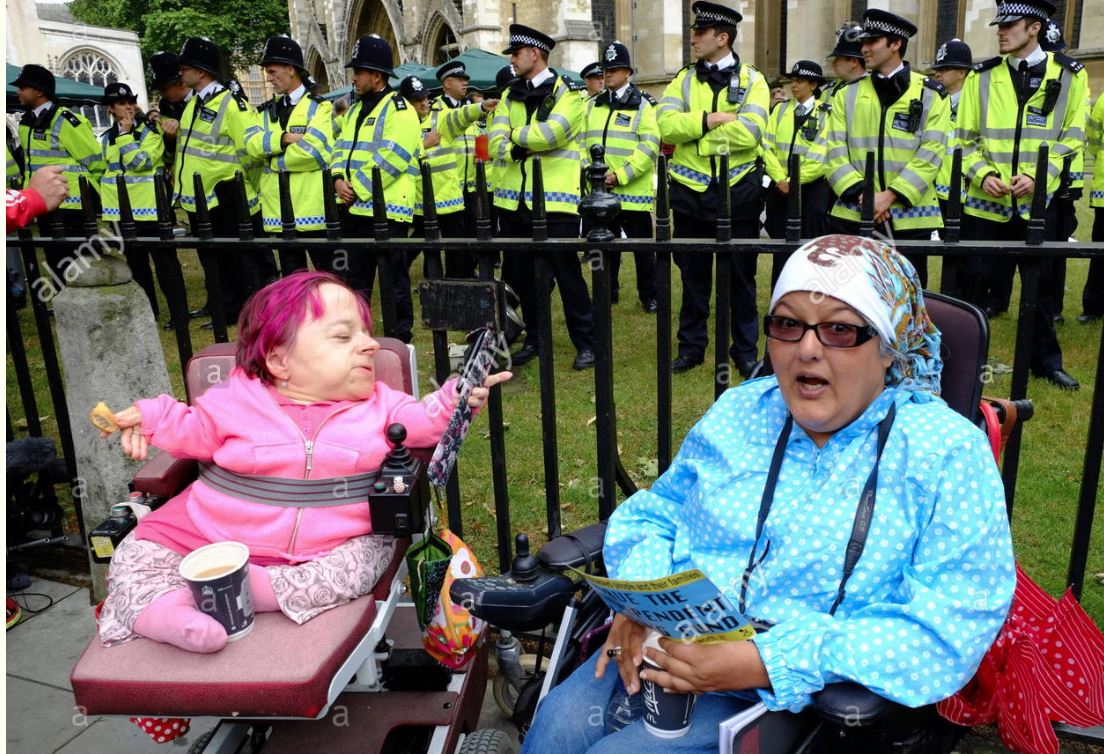
The info on this page is out of date and has been updated here
The government passed the Coronavirus Act, which suspends Care Act legal obligations and other duties. This is supposed to be temporary and kept under review. We need to know our rights and what the official guidance says about the support services we rely on. We have put together what we have found out so far. Disability News Service has publicised that at least one Council, Warwickshire, wrongly stopped its functions in advance. A lot of what the authorities will do to keep services going, depends on how much people protest.
Some people are having problems with their homecare service, for example, the carer has not arrived as usual (many paid carers are not being given protective equipment for visits). If contacting your care co-ordinator has not resolved the problem, or you can’t reach them, we suggest to contact the duty social worker at the adult social care team of your local Council, and also your local MP to get back-up with urgent needs.
Here are some of the basic points. Below are links to more in-depth information. (Many thanks to Svetlana Kotova at Inclusion London, Prof Luke Clements, barrister Steve Broach and In Control Birmingham.)
Local authorities no longer have a duty to meet eligible needs which you have been assessed for, but they can still choose to do so and the Care Act Easements guidance says Local Authorities are still expected to take all reasonable steps to continue to meet needs as now.
Although many duties have been suspended, it is important to remember that many duties still remain. Some of those are:
-
- The duty to promote well-being
- The duty to provide information and advice
- Duties to involve people and ask what they want
- Prevention duties
- Safeguarding duties
- Advocacy duties
The Equality Act is not affected by the Coronavirus Act — the duty to make “reasonable adjustments” to how services are provided, and for employees, still applies.
The Public Sector Equality Duty still applies to policies made by Councils and other public authorities, so they must take into account how these policies impact people, and the impact of decisions in individual cases. Private companies working for the Council or DWP count as public authorities who have this duty.
There are still duties under the Human Rights Act, for example, the right to life and the right to be protected from inhuman and degrading treatment. These are harder to prove in legal cases than the Care Act duties.
Care charges. Women are being charged for homecare which they have cancelled as a Coronavirus precaution. Or the Council is overcharging because they are now refusing to do a financial assessment of disability-related expenses which count against charges, but have started blanket charges. We say they should suspend charges. We suggest to complain to the Council and copy in your MP, ask them to take it up on your behalf.
Women are also being charged after discharge from psychiatric hospital under section. This is unlawful. People coming out of hospital after section are entitled to free aftercare under s117 of the Mental Health Act. This is not changed by the Coronavirus Act.
There is a call to stop all care charges during the Coronavirus crisis — also because people have unexpected extra costs at this time.
Mental Health Act
The Coronavirus Act gives powers that people in mental distress could be sectioned on the opinion of one doctor only, and that people could be detained longer, or released early — possibly without any support in the community being put in place.
Further information
- Video: legal briefing by barrister Steve Broach, webinar by In Control, Birmingham. The sound gets a bit muffled after the start, but gets better, so keep going with it. It’s about an hour long.
- Legal briefing by Luke Clements, Professor of Law at Leeds University and solicitor
- Disability News Service on the measures and Warwickshire County Council
- Mental Health Act — info from Rethink
